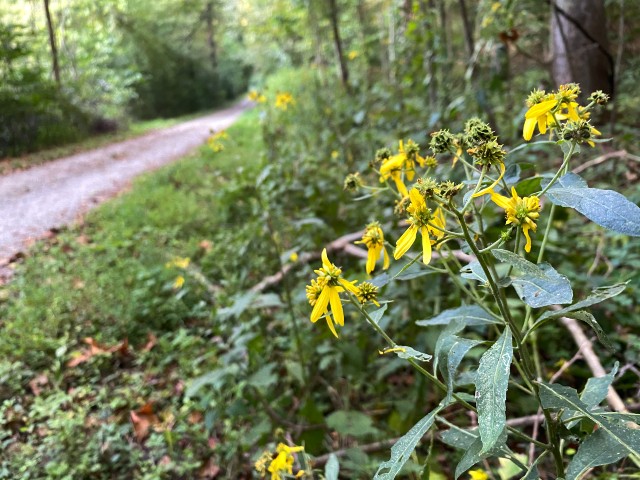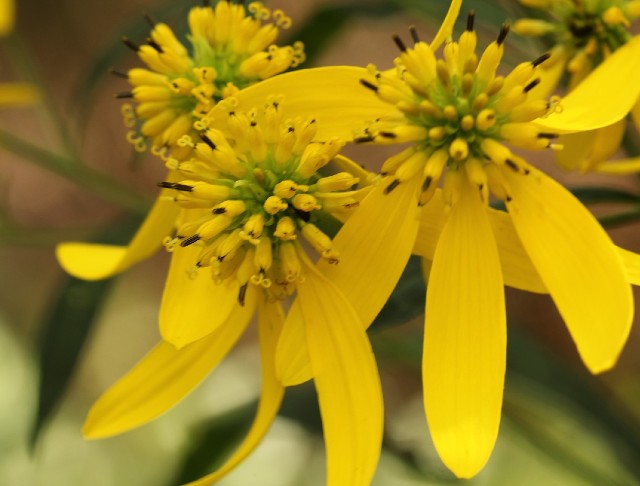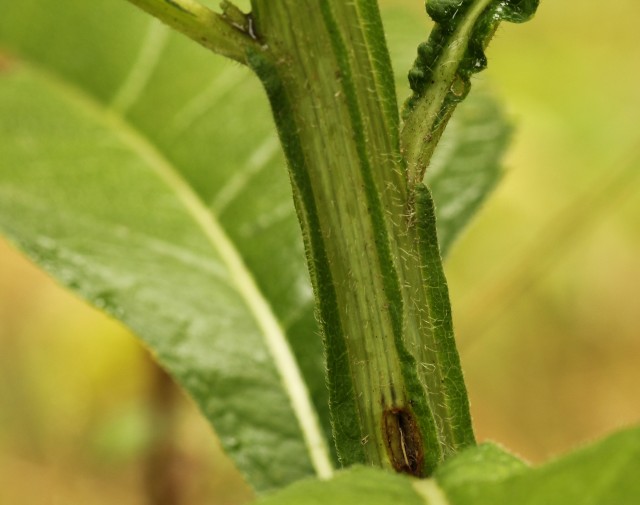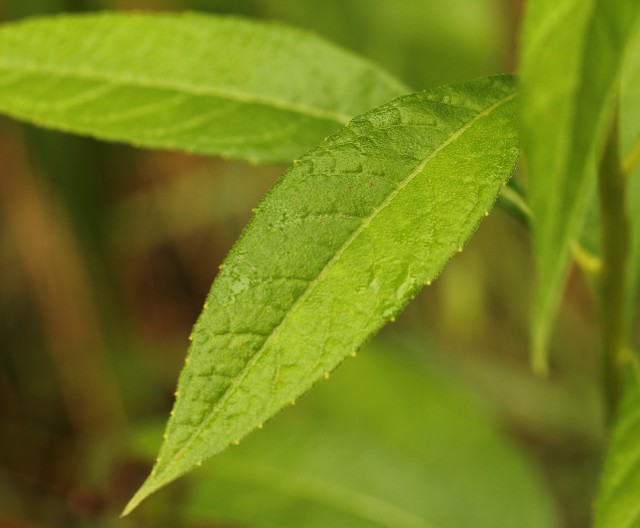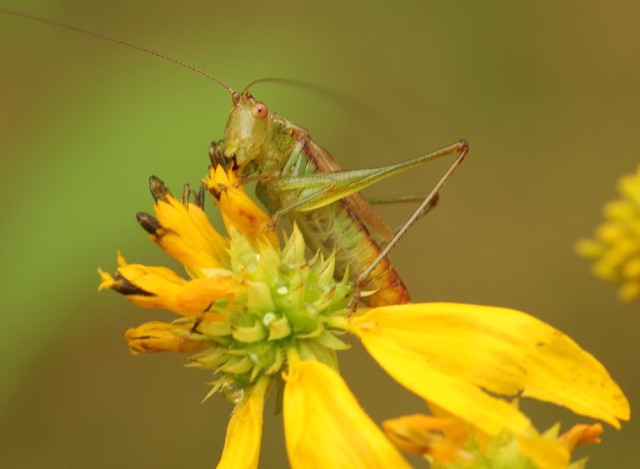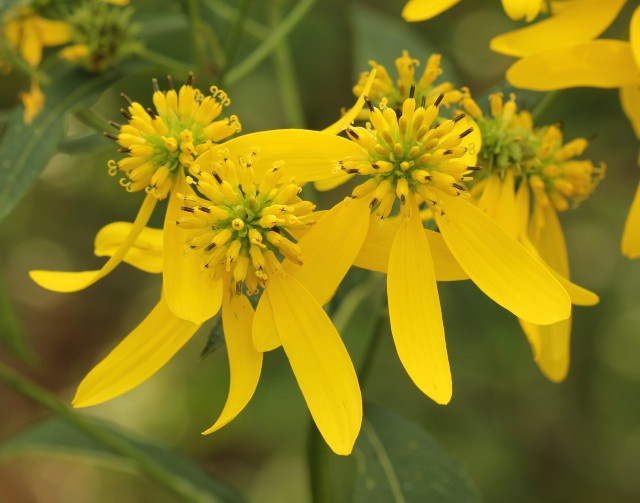While hiking Snake Road in southern Illinois, as well as when exploring Cuyahoga Valley National Park in my home state of Ohio, it’s hard to miss these conspicuous plants They are often over six feet tall and feature large yellow flowers with drooping ray florets.
This plant gets its common name from the fact that its main stem has vertical ridges, sometimes described as “wings.” Before the blossoms appear, the plant resembles Ironweed, prompting the additional common name of Yellow Ironweed.
Wingstem leaves are alternate and very coarse to the touch (like sandpaper). Its foliage serves as food for caterpillars and it is a host plant for the Silvery Checkerspot Butterfly, Summer Azure Butterfly and Gold Moth.
Wingstem flowers attracts a number of pollinators; they also serves as a food source for insects. This plant is a member of the Sunflower Family, the largest family of flowering plants, with more than 24,000 documented species.
This native wildflower prefers to grow in moist soil conditions in either full sun or partial shade. In the wild it is found along streams, flats, trails and moist woodlands.
Despite the great ecological value of this species and frequent occurrence in a number of different habitats, Wingstem is often left out of field guides, including the one that I frequently use, Wildflowers of Ohio.

